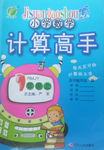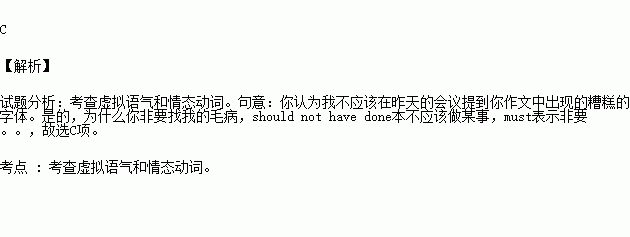题目内容
— Do you think I really _____ the bad handwriting in your composition at yesterday’ s meeting?
—Sure, Why _____ you always pick holes in everything I write?
A. wouldn’t have mentioned; can
B. mustn’t mention; should
C. shouldn’t have mentioned; must
D. couldn’t mention; would
 智能训练练测考系列答案
智能训练练测考系列答案 计算高手系列答案
计算高手系列答案书面表达
近日教育部(the Ministry of Education)要求加强中小学劳动教育,这一举措引发了人们的热议。请你根据下面表格中的内容,写一篇新闻报道。
学生的观点 | 一部分学生:劳动教育有助于身体健康,全面发展
|
你的观点 | …… |
注意: 1. 词数80左右
2. 开头已给出,不计入总词数。
Recently, the Ministry of Education has issued a requirement that students should be given labor education while at school, which arouses a heated debate.
____________________________________________________________________________________
____________________________________________________________________________________
____________________________________________________________________________________
____________________________________________________________________________________
____________________________________________________________________________________
____________________________________________________________________________________





 另一部分学生:劳动教育占用学习时间,影响成绩
另一部分学生:劳动教育占用学习时间,影响成绩